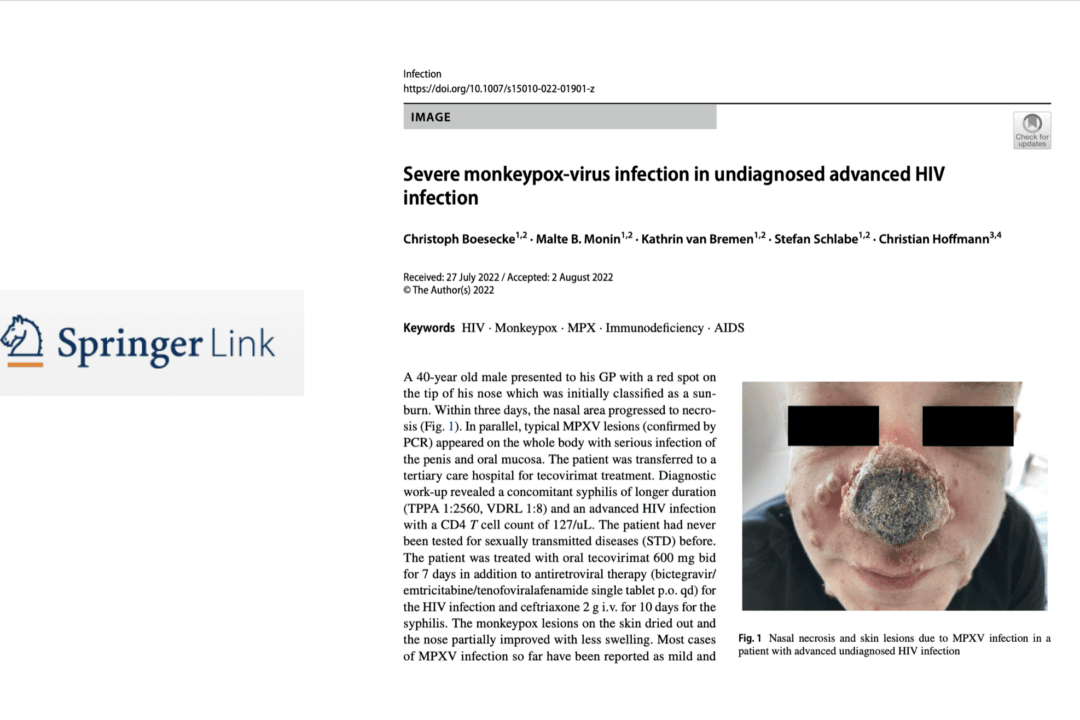A middle-aged man in Germany developed severe skin lesions due to infection with monkeypox in recent days. The skin on his nose decayed and had turned black, and white abscesses formed on his body. He was found to be positive for syphilis and HIV after testing. The doctor pointed out that the immunity of the patient was weakened by the HIV virus, making the skin more susceptible to infection and necrosis, therefore the symptoms of such a severe infection appeared.
The case was published in the latest issue of the medical journal Journal of Infection. A 40-year-old German man went to his GP with red spots on his nose and was diagnosed with sunburn.





